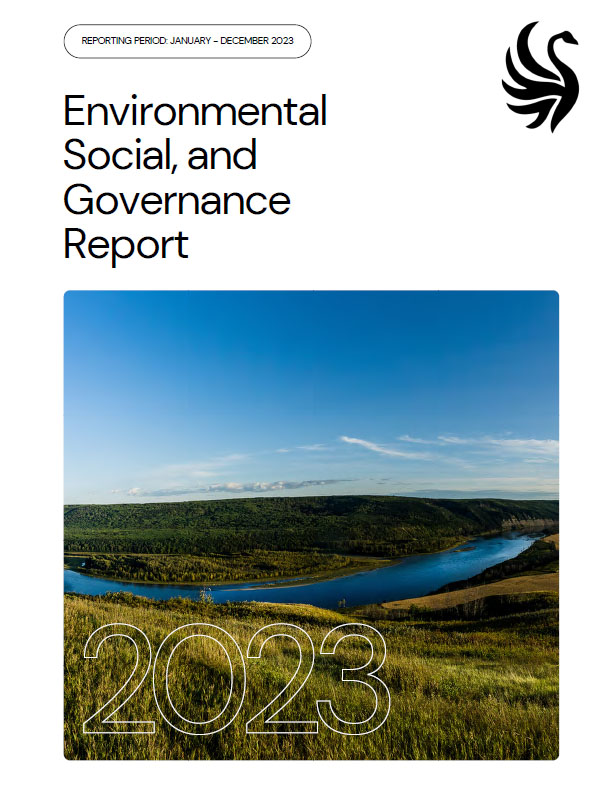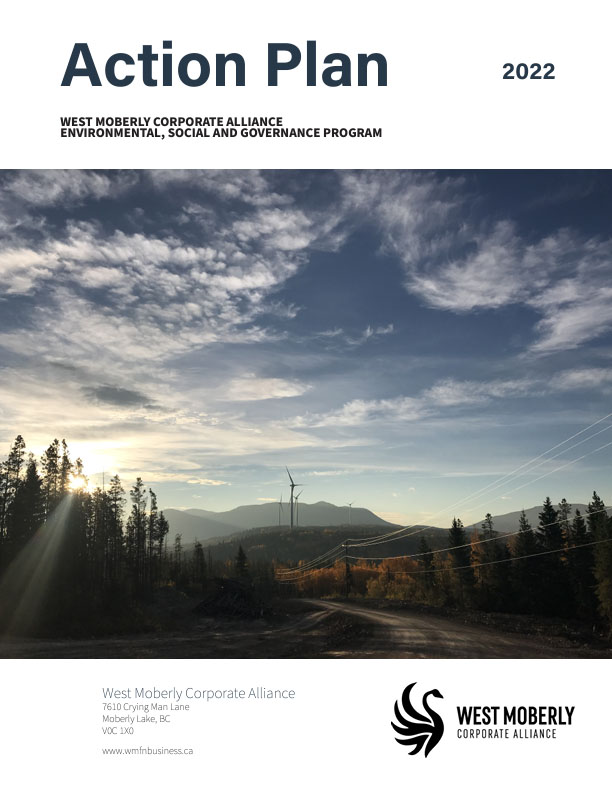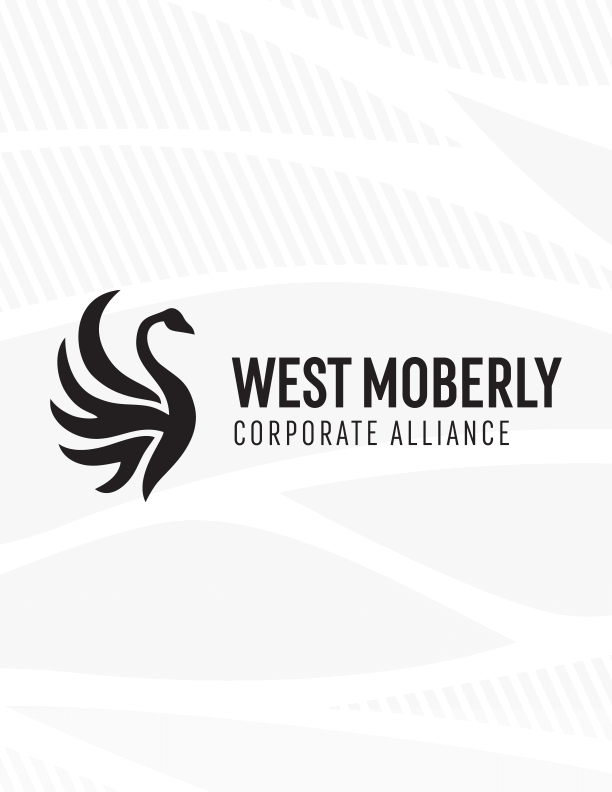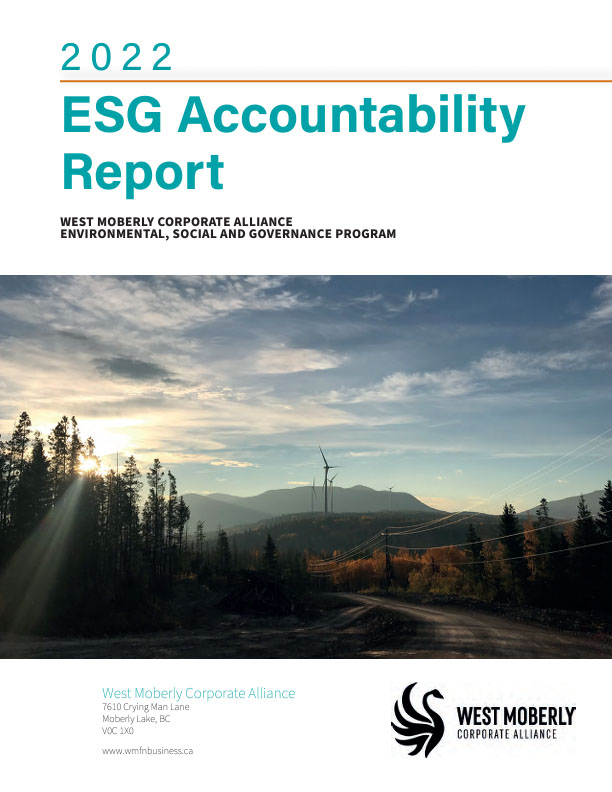ENVIRONMENTAL, SOCIAL and GOVERNANCE POLICY STATEMENT
BUILDING TRUST THROUGH ACCOUNTABILITY
As the economic development authority for West Moberly First Nations (WMFN), the West Moberly Corporate Alliance has a mandate to ensure WMFN benefits from projects undertaken in the Treaty 8 territory.
Together with our Alliance partners, we aim to contribute to the economic well-being of the community. Our efforts are focused on supporting a healthy, vibrant First Nations community, aspiring to grow stronger across generations, while honouring Indigenous values.
Our ESG policy is designed to encourage industry operators and project proponents to engage WMFN members with a shared ethos of accountability. This involves a commitment to respecting the land, valuing people, and responsibly managing resources.

What is ESG?
As an Indigenous, community-owned corporation, West Moberly Corporate Alliance believes in a holistic, long-term approach to assessing opportunity and risk. We recognise that ESG is an industry-accepted way to integrate Indigenous stewardship values into business decision making. By tracking and communicating on ESG factors, we can reinforce sustainable business practices and validate work being done within companies to maximize shared opportunity and minimize risk.
- Environmental (E) factors assess how a company performs as a steward of nature. It analyses how its activities impact the environment and manage environmental risks. It includes both direct operations and across the supply chain. For example, resource scarcity and management, natural resources preservation, animal treatment and greenhouse gas emissions.
- Social (S) factors assess the strengths and weaknesses of how a company manages relationships with employees, suppliers, customers, and the communities where it operates. For example, these criteria include working conditions, community development, community relations, health and safety, employee relations, training, career development, and diversity.
- Governance (G) factors assesses a company’s leadership, executive pay, audits, internal controls, and shareholder rights. It includes controls regarding executive pay, gender equity / equal pay, discrimination, bribery and corruption, and board diversity.
Our Commitment
WMCA aligns its business practices with social, environmental, and governance reporting standards. We recognize commitments to Indigenous communities outlined in international instruments such as ILO Convention 169 and the UN Declaration on the Rights of Indigenous Peoples.
Accountability to West Moberly First Nations
WMCA is committed to annual ESG reporting both of qualitative disclosures of topics, and of quantitative metrics measured by its partners in reference to Global Resource Initiative (GRI) Standards.
By including both types of data in a single document, we provide a window into the planning that is undertaken by our partner companies, along with the hard data that our partners have committed to track over time.
This data will be published annual in a single ESG Accountability Report, publicly available to community members and industry operators alike. WMCA and each company work together to decide the relevant ESG info that each company reports in accordance with GRI standards. It is the responsibility of WMCA to report this information publicly, for review by community members and business stakeholders.
WMCA’s ESG Program Actions
- In consultation with existing partners, West Moberly First Nations Chief and Council, and 3rd party experts, WMCA provides guidance on ESG metrics that are material (relevant) across the various Alliance sectors and to specific Partner companies
- WMCA Partners review the guidance and completed an agreement to track selected ESG metrics for reporting, indicating how the datasets would be tracked, maintained, and reported to WMCA.
- WMCA Partners meet quarterly with WMCA to review their qualitative tracking and discuss any relevant qualitative disclosures.
- WMCA meets with WMFN to discuss changes, priorities and reporting practices.
- WMCA publishes its annual ESG Accountability Report to demonstrate performance towards ESG, community and Indigenous values.




 DRIVING PROGRESS THROUGH UNITY.
DRIVING PROGRESS THROUGH UNITY.